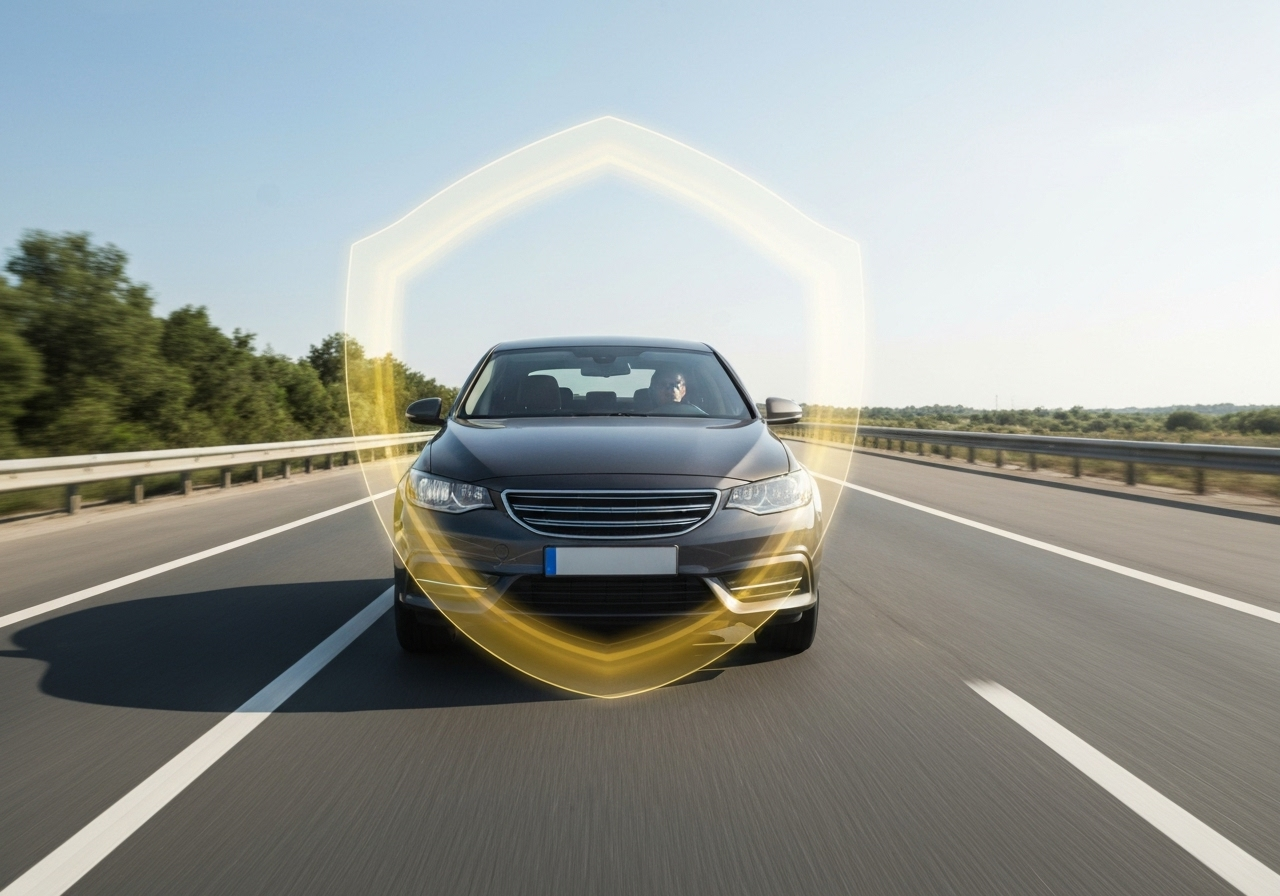Understanding Uninsured Motorist Coverage Explained: Your Essential Auto Protection
In an ideal world, every driver on the road would carry adequate auto insurance. Unfortunately, that’s not the reality. Many drivers operate without any insurance, or with insufficient coverage, leaving you vulnerable in the event of an accident. This is where uninsured motorist coverage explained becomes essential. Uninsured Motorist (UM) and Underinsured Motorist (UIM) coverage are vital components of an auto insurance policy designed to protect you and your passengers when the at-fault driver lacks the necessary financial protection.
According to recent statistics, roughly one in every seven U.S. drivers does not have auto insurance, with some states seeing rates as high as 25%. This significant presence of uninsured drivers underscores the critical need for UM/UIM coverage. Beach Insurance LLC understands these risks and aims to equip you with the knowledge to safeguard your financial well-being on the road.
Why Uninsured Motorist Coverage is Crucial for Drivers
Even if auto insurance is mandatory in your state, the risk of encountering an uninsured or underinsured driver remains. Without specific coverage, you could face substantial out-of-pocket expenses for medical bills, lost wages, and vehicle repairs if you’re involved in an accident with a driver who cannot pay. This financial exposure can be devastating. Many states, recognizing this risk, either mandate or strongly recommend uninsured motorist coverage. For instance, while auto insurance may not be required in New Hampshire, if purchased, UM/UIM coverage is compulsory.
This coverage acts as a crucial safety net, stepping in to cover costs that the at-fault driver’s non-existent or insufficient policy would otherwise leave you bearing. It’s a proactive measure to protect your assets and ensure that an irresponsible driver doesn’t derail your financial stability. For a broader understanding of essential auto coverages, including UM/UIM, consider exploring 5 Important Auto Coverages to Consider.
What Does Uninsured/Underinsured Motorist Insurance Cover?
Uninsured/underinsured motorist insurance typically breaks down into two primary categories: Bodily Injury and Property Damage. Understanding these distinctions is key to comprehending the full scope of your protection:
- Uninsured Motorist Bodily Injury (UMBI): This coverage pays for medical expenses, lost wages, and pain and suffering for you and your passengers if you’re injured by an uninsured driver or, in some states, a hit-and-run driver.
- Uninsured Motorist Property Damage (UMPD): This covers damages to your vehicle and sometimes other property if caused by an uninsured driver.
Similarly, Underinsured Motorist (UIM) coverage works to fill the gap when an at-fault driver has some insurance, but their policy limits aren’t high enough to cover your total damages. For instance, if their policy only covers $25,000 for your injuries, but your medical bills amount to $40,000, UIM could cover the additional $15,000, up to your policy limits. This comprehensive approach ensures that whether the other driver has no insurance or simply not enough, your financial well-being is safeguarded.
Navigating Hit-and-Run Accidents with Uninsured Motorist Coverage
A common concern for drivers is what happens after a hit-and-run accident. When the at-fault driver flees the scene, they are effectively considered uninsured. In such unfortunate events, your uninsured motorist coverage can be invaluable. UM coverage typically extends to hit-and-run incidents, helping to cover your medical expenses and, in many states, damage to your vehicle. However, it’s important to note that state regulations vary. In some areas, UMPD might not cover hit-and-run property damage, requiring you to rely on your collision coverage instead.
The immediate steps after a hit-and-run are crucial: ensure safety, contact the police, and gather any available information, such as witness contacts or partial license plate numbers. Promptly filing a claim with your insurer is also important, as some policies have time limits for reporting such incidents. Having strong uninsured motorist coverage explained means having peace of mind, even in these challenging scenarios.
Uninsured Motorist Property Damage vs. Collision Coverage: What’s the Difference?
While both Uninsured Motorist Property Damage (UMPD) and Collision coverage help pay for damage to your vehicle, they operate under different circumstances. Understanding this distinction is vital for comprehensive protection:
- Uninsured Motorist Property Damage (UMPD): This coverage specifically applies when your vehicle is damaged by an uninsured driver. Depending on your state, it may cover damages to your car and other property, and sometimes even your deductible. Its primary purpose is to protect you from the financial burden caused by someone else’s lack of insurance.
- Collision Coverage: This coverage pays for damage to your own vehicle resulting from a collision with another car or object, regardless of who is at fault. It’s a broader coverage that kicks in whether the other driver is insured, uninsured, or if you hit a stationary object.
For example, if an uninsured driver rear-ends you, UMPD would cover the damage to your car. If you hit a tree, your collision coverage would pay for the repairs. In some states, UMPD also covers hit-and-run property damage where collision coverage would otherwise be necessary. While collision is usually a more comprehensive option for protecting your vehicle from crash damage, UMPD specifically addresses the gap left by uninsured drivers, often at a lower cost than collision coverage. For more on liability protection, see our guide on Navigating Liability Car Insurance.
Do You Need Uninsured Motorist Bodily Injury Coverage If You Have Health Insurance?
It’s a common question: “If I have health insurance, do I really need Uninsured Motorist Bodily Injury (UMBI) coverage?” While your health insurance will likely cover medical expenses from an auto accident, UMBI offers distinct advantages and protections that health insurance typically doesn’t:
- No Deductibles/Copays: UMBI often has no deductible, unlike many health insurance plans that come with high deductibles and copays. This can significantly reduce your out-of-pocket costs after an accident.
- Lost Wages: UMBI can cover lost income if your injuries prevent you from working, a benefit generally not provided by health insurance.
- Pain and Suffering: This coverage can provide compensation for non-economic damages like pain and suffering, which health insurance does not address.
- Protection for Passengers: Your UMBI coverage extends to your passengers, protecting them even if they don’t have their own health insurance or if their health insurance is limited.
In states where UMBI is optional, considering these benefits is crucial. While health insurance covers medical treatment, it won’t cover lost wages or the other financial consequences of an uninsured driver’s negligence. As noted by Allstate, UMBI and UIMBI may offer higher limits than medical payments (Med Pay) or personal injury protection (PIP), providing more comprehensive financial protection in the face of serious injuries. For further details on how auto insurance handles medical expenses, refer to Does Auto Insurance Cover Medical Expenses?
How Much Uninsured Motorist Coverage Do You Really Need?
Determining the right amount of uninsured motorist coverage is a personal decision, but it’s one that should be made carefully. While some states only require basic minimums for UM/UIM, these limits often fall short of covering the true costs of a serious accident, especially with rising medical expenses and vehicle repair costs.
A common recommendation from insurance professionals is to match your UMBI limits to your bodily injury liability limits. For example, if you carry liability limits of $100,000 per person and $300,000 per accident, consider the same for your UMBI. This ensures that you and your passengers have similar protection for injuries as you provide for others. This insight is critical: while state minimums are a legal baseline, they are rarely enough to protect your assets from the financial fallout of a serious accident. For property damage, consider a UMPD limit that aligns with the value of your vehicle, especially if you don’t carry collision coverage. The goal is to protect your net worth and avoid personal financial ruin if an accident with an uninsured driver occurs.
Consider the average cost of a new vehicle or significant medical treatment when setting your limits. An accident with substantial injuries or vehicle damage can quickly deplete low coverage limits, leaving you responsible for the remainder. For more information on assessing your coverage needs, explore resources on Uninsured Motorist Coverage (UM): How It Works, Requirements, which emphasizes the critical role of UM/UIM in financial protection. Being prepared means having enough coverage to truly protect yourself, not just meet a legal minimum.
Protecting Yourself with Beach Insurance LLC: Get Your UM/UIM Coverage Today
Navigating the complexities of auto insurance, especially when it comes to safeguarding yourself from uninsured and underinsured drivers, can be challenging. Understanding uninsured motorist coverage explained is a crucial step towards comprehensive auto protection. At Beach Insurance LLC, we are dedicated to helping you secure the right coverage to fit your unique needs and provide peace of mind on every journey.
With a significant percentage of drivers on the road operating without adequate insurance, UM/UIM coverage is not just an option; it’s a necessity. It shields you from potentially catastrophic medical bills, lost wages, and property damage in accidents that are not your fault. Our team of experienced agents at Beach Insurance LLC is here to guide you through your options, explain policy details, and help you determine the optimal coverage limits to protect your assets and your family.
We pride ourselves on providing personalized service, ensuring that you understand every aspect of your policy. Don’t leave your financial security to chance. Ensure you have the robust protection you deserve against the unforeseen. Partner with Beach Insurance LLC to customize your auto insurance and drive confidently, knowing you’re well-prepared for whatever the road may bring. We are committed to helping you make informed decisions about your auto protection.






